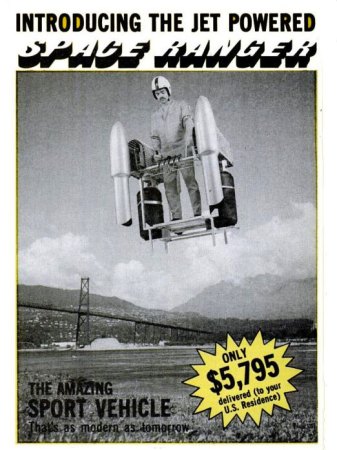

We may earn revenue from the products available on this page and participate in affiliate programs. Learn more ›
This post has been updated. It was originally published on June 8, 2020.
With a good pair of headphones, your music can sound incredible … and your brain can feel like it’s in a trash compactor. No matter where they’re hurting you, you’ll get way more comfortable headphones if you’re willing to mod them a little bit.
Every pair of cans is different, which means there’s no one-size-fits-all solution to the discomfort they cause. So as a first step, inspect your headphones to see if you can figure out where the pain is coming from and why. Maybe the band is digging into your skull, or the clamping force is too tight around your ears. Once you figure out the cause, we have a few potential solutions—but you may have to put on your engineering hat to adapt these fixes to your specific headphones to make them as comfortable as possible.
“Why do my ears get hot?”

Many headphones come with plush-but-plasticky fake-leather ear pads, which can make you sweat like a polar bear in Louisiana. The solution is simple: Get softer, more breathable velour (or fake velour) ear pads. Many companies make inexpensive third-party pads for popular headphones, so search around Amazon to find the right pair for to make your model more comfortable.
If you don’t see any pads made for your specific headphones, don’t lose hope. A lot of headphones use cups of similar size, so third-party pads made for one headphone may fit almost perfectly on another, less-popular model. Unfortunately, the only way to know is to try them out—or hope someone else has already done so. Google around for your model of headphones and “velour ear pads” to see what other audio nerds have found. Chances are, you’ll uncover a thread on Head-Fi.org or Reddit’s /r/headphones that has the information you need.
There is one big downside with this mod: More breathable ear pads, by definition, let more air in and out. That’s good for your ears, but it also means more sound will escape through that fabric, too. Your headphones won’t be quite as noise-isolating with this method, so you’ll be able to hear others around you, and they may be able to hear your music. It’ll also alter the sound of your headphones, slightly reducing the bass.
Unfortunately, you can’t change the laws of physics. You have to decide which of these things—comfort versus isolation and bass—matter more to you. On the other hand, if you don’t end up liking the pads, you can always replace the original ones.
“The headband hurts my skull!”

Some headphones pad the band with luscious amounts of memory foam… and others cover the hard plastic in cheap, thin fabric. If your headband feels like it’s pressing right on the peak of your skull, you’ll need to add some extra cushioning.
Depending on your headphones, this can be more difficult than it sounds. This inexpensive, universal padding from Geekria ($9) will fit just about any headband, but it looks like you pulled a sock over your headphones—not exactly fashionable. This pleather snap-on cushion from the same company is twice as expensive ($18), but it looks a bit better and should still fit a lot of headphones. And both are removable, if you decide you don’t like them.
To really go DIY on the headband, though, you can remove whatever cushioning is there and replace it with something completely new. Amazon is full of replacement cushions for popular headphones, and you may be able to use one of them to jerry-rig your own superbly comfortable pair. For example, you could apply this $15 replacement pad for various Bose headphones to a plastic headband with some glue or industrial Velcro. It will likely look a lot better than the universal options, but not every headphone will be so accommodating—so you may need to get a little clever in how you attach it.
If none of those solutions work, you might be able to remove the headband entirely—I replaced the hard, bumpy headband on my AKG Q701 with an old leather belt, and they now feel like a cloud—I can barely tell they’re on my head.
“They make my glasses dig into my head!”

You might be wondering how to wear headphones with glasses. No one understands the plight of uncomfortable headphones like someone with glasses. Even if they have relatively light clamping force and soft pads, a large pair of over-the-ear headphones will always press on your frames, making them burrow into your temple. Believe me, I’ve tried many.
If you want the most comfortable over-ear headphones, there’s a solution. I took a hobby knife to my ear pads and sacrificed their structural integrity in the name of comfort. After cutting a path the shape of my frames through the entire ear pad, my good headphones no longer make my glasses feel like a medieval torture device. Cutting into the foam like this will almost certainly make the pads fray after some time, but that’s a small price to pay. And if you’re worried about ruining your headphones’ ear pads, try this hack on some cheap replacement pads first, as discussed in the first section of this article.
“The headphones clamp too hard!”

You want your headphones to stay on your skull, not slide around while you bob your head to the music. But when they clamp too hard, it can be painful. Thankfully, the solution is pretty easy: Stretch them out.
[Related: The best wireless earbuds to get wrapped up in music]
Grab some books and stack them side-by-side until they’re about the width of your head, or a tad wider. Then stick your headphones over this improvised stretcher whenever you aren’t using them. After a few days, they should start feeling a little more comfortable. Just be careful not to stretch them out too much—better to start small and work your way up.
If your headphones have metal bands, like the Sony headphones shown above, you can also bend them by hand as shown in this YouTube video. Be very careful not to bend them too far, or you may not be able to get them back to their normal shape.
“The drivers press against my ears!”

What if the clamping force isn’t too bad, but the cups are too shallow, causing the driver to actually press against your ears? (This can also happen if your ears stick out like mine do.) In this case, you can deepen the ear cups, but be aware that this fix will probably alter the sound slightly.
To make your headphones more comfortable, take some foam or other padding and stuff it under the ear pad, all the way around. This should increase the thickness of the pad, creating more space inside the cup for your ears. I used backer rod, though you could also try something a little more plush, such as cotton balls.
In my experience, this makes the sound a touch bassier and muddier, but different types of padding will produce different results. You might even want to test out a few different materials to find the right balance of comfort and sound for you. Once you do, you’ll wonder how you went so long without it.















